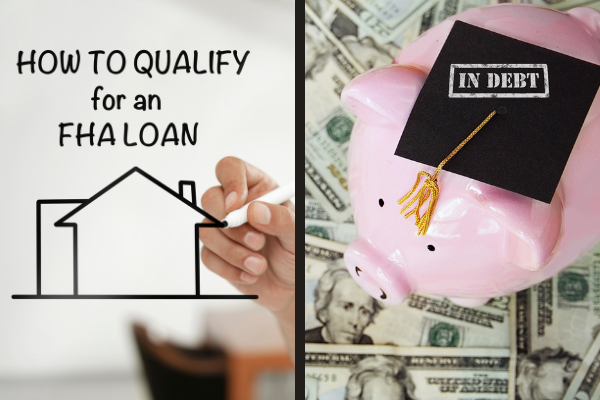When does an FHA Streamline Refinance Make Sense?
 The FHA streamline refinance is not right for everyone, but if rates significantly dropped or you can afford a fixed-rate loan and want out of an ARM, it can make sense. If you’ll stay in the home for the foreseeable future, you can either save money on interest or have a more predictable payment.
The FHA streamline refinance is not right for everyone, but if rates significantly dropped or you can afford a fixed-rate loan and want out of an ARM, it can make sense. If you’ll stay in the home for the foreseeable future, you can either save money on interest or have a more predictable payment.
Before you jump on board, ask yourself:
- Am I saving enough money to make the cost of refinancing worth it?
- Would I feel more at ease with a fixed-rate loan versus an ARM?
When Doesn’t an FHA Streamline Refinance Make Sense?
Like we said, sometimes it doesn’t make sense to refinance.
First, make sure you can afford the closing costs. Unlike most other loan programs, you cannot roll your closing costs into the loan. Make sure you have the money to cover the closing costs plus the FHA upfront mortgage insurance fee equal to 1.75% of the loan amount. You may get a credit for some of the insurance you paid already.
Next, make sure the interest changes are enough to refinance. Just because you get a lower rate, doesn’t mean it automatically makes sense. Look at the big picture. Is the payment lower? Are the over loan costs lower? Look at the loan’s total cost over the entire term to decide.
Pros and Cons of the FHA Streamline Refinance
Pros:
- Simple to qualify for and use
- You may be eligible for an FHA MIP refund
- No appraisal necessary
- No credit check or income verification needed
- A simple way to lower your payment or change your loan’s term
Cons:
- You owe closing costs upfront
- You’ll pay the upfront MIP again
- You’ll start your loan term over again
FAQ – FHA Streamline Refinance
Do you have to pay closing costs on the FHA streamline refinance?
Yes, you always have to pay the closing costs upfront on the FHA streamline refinance. Some lenders may offer a no-closing cost loan, but the interest rate will be higher. This may negate the net tangible benefits of refinancing.
Do you need an appraisal for the FHA streamline refinance?
No, the FHA doesn’t require an FHA appraisal. This also means you don’t have to worry about making specific repairs to meet the FHA minimum property requirements.
Is there a minimum credit score required for the FHA streamline refinance?
The FHA doesn’t require lenders to pull credit for the FHA streamline refinance. If your lender pulls credit, they’ll typically require between a 580 – 640 to qualify, though.
Final Thoughts
If you have an FHA loan and know rates dropped lower than what you pay now, look into your options. You don’t have to use the same lender, so shop around and get at least 3 quotes.
Look at your options, comparing the rate, closing costs, and overall loan term. To qualify, you must have an on-time mortgage payment history plus prove you benefit from the refinance. It can be a great way to save money on your loan if you look for the best loan possible.
 FHA borrowers have an exceptional program available to them called the FHA streamline refinance. It’s a simple way to get a lower mortgage payment and/or lower rate, but it’s not for everyone.
FHA borrowers have an exceptional program available to them called the FHA streamline refinance. It’s a simple way to get a lower mortgage payment and/or lower rate, but it’s not for everyone. In the past, a lot of potential borrowers were declined for FHA loans due to the presence of student loans. Now, the Biden Administration along with the FHA has eased a lot of their regulations surrounding student loans, making it easier for borrowers with student loans to qualify for a home loan. The FHA required that FHA mortgage companies calculated the monthly student loan payment as one percent of their outstanding loan balance if the loans were not fully amortized; however, this is now changing.
In the past, a lot of potential borrowers were declined for FHA loans due to the presence of student loans. Now, the Biden Administration along with the FHA has eased a lot of their regulations surrounding student loans, making it easier for borrowers with student loans to qualify for a home loan. The FHA required that FHA mortgage companies calculated the monthly student loan payment as one percent of their outstanding loan balance if the loans were not fully amortized; however, this is now changing.